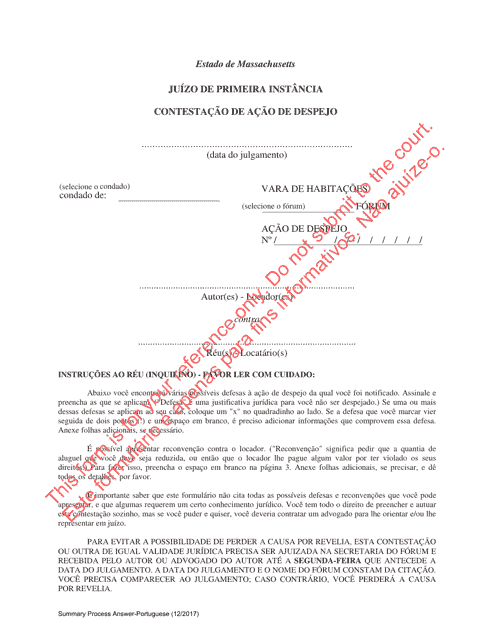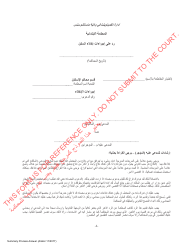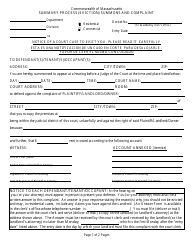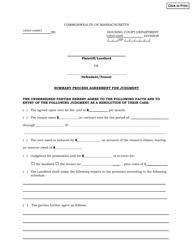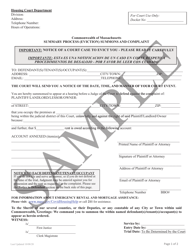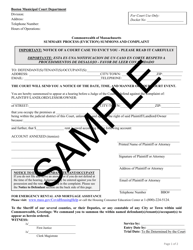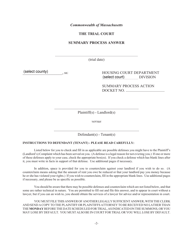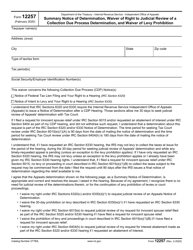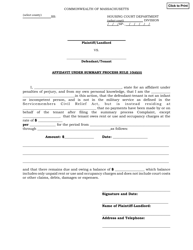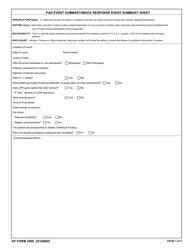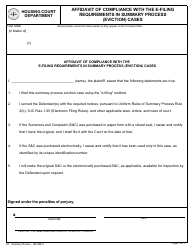Summary Process Answer - Massachusetts (Portuguese)
This is a legal document that was released by the Massachusetts Housing Court - a government authority operating within Massachusetts.
The document is provided in Portuguese.
FAQ
Q: What is the Summary Process?
A: The Summary Process is a legal procedure used to evict a tenant from a rental property.
Q: Who can file for Summary Process?
A: The landlord or property owner can file for Summary Process.
Q: What are the grounds for eviction under Summary Process?
A: Common grounds for eviction include non-payment of rent, lease violations, or the end of a lease term.
Q: What is the notice period required for eviction?
A: The notice period for eviction varies depending on the reason for eviction, but it is generally 14 days.
Q: What happens after the eviction notice is served?
A: If the tenant does not leave the property voluntarily, the landlord can file a complaint in court to initiate the eviction process.
Q: What is a summons and complaint?
A: A summons and complaint is a legal document that notifies the tenant of the eviction lawsuit and provides them an opportunity to respond.
Q: What is a court hearing?
A: A court hearing is a scheduled meeting where both the landlord and tenant present their case before a judge.
Q: What happens if the tenant loses the eviction case?
A: If the tenant is found to be in violation of the lease or rental agreement, the court may issue an eviction order.
Q: How long does the eviction process take?
A: The eviction process can take several weeks to months, depending on the complexity of the case and the backlog of the court system.
Q: Can a tenant appeal an eviction order?
A: Yes, a tenant can appeal an eviction order within a specified period of time after the court's decision.
Form Details:
- Released on December 1, 2017;
- The latest edition currently provided by the Massachusetts Housing Court;
- Ready to use and print;
- Easy to customize;
- Compatible with most PDF-viewing applications;
Download a printable version of the form by clicking the link below or browse more documents and templates provided by the Massachusetts Housing Court.
